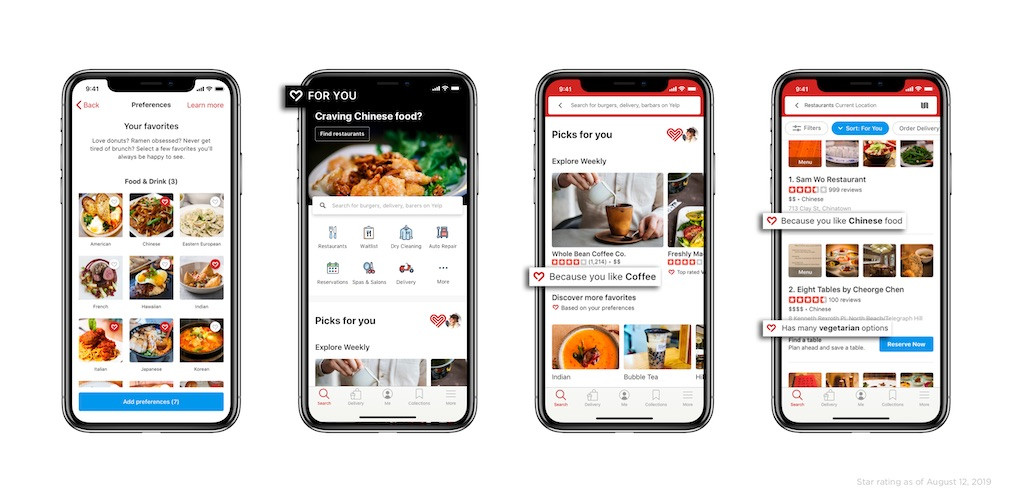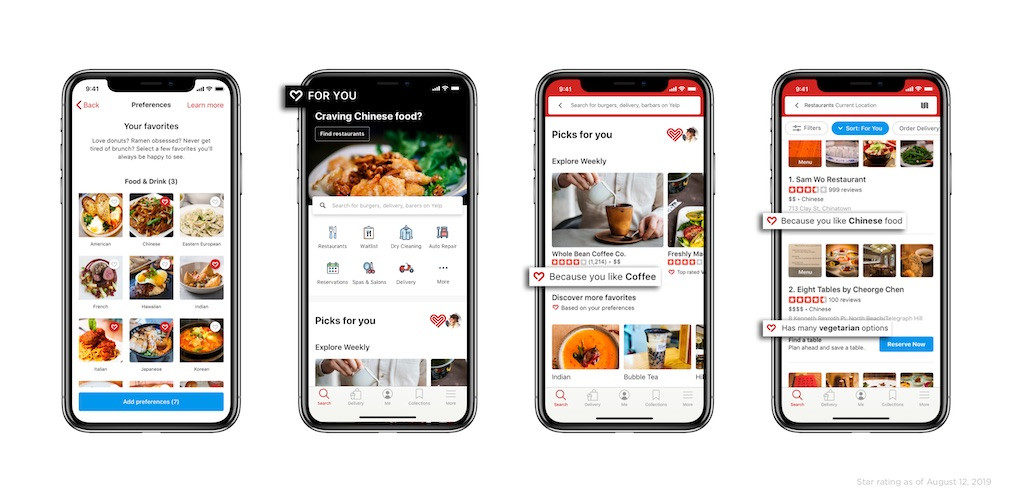This is the latest in LSA’s Skate To Where the Puck is Going series. Running semi-weekly, it examines the moves and motivations of tech giants as leading indicators for where markets are moving. Check out the entire series here, and its origin here.
Yelp announced a new feature on Tuesday that will create a personalized front end for its mobile app. For those unfamiliar, the new UX allows users to specify their dietary and lifestyle preferences in an onboarding module. That will then govern search results and home-screen suggestions on an ongoing basis.
The move is logical and even surprising in that it didn’t already exist. We’ve seen an overall trend in mobile UX design towards personalized and curated experiences in favor of traditional search-forward ones. This trend is most evident in Apple’s iOS 11 App Store redesign which makes it more discovery than search.
But in order to pull that off, you need signals on which to base personalization. Careful not to go too far down an AI/automated path, Yelp has opted for explicit user signals through its new onboarding module. That has downsides in forcing a user action (explicating their preferences) but upsides in reliability.
Another key tradeoff for Yelp — and a driver for this rollout, we believe — is user engagement. With a more personalized “home” experience and search results on its mobile app, the company is hoping to grow its active use. This is the name of the game in the highly-competitive and mature mobile appverse.
Beyond the overall mobile playbook, Yelp’s new UX could be about gaining mobile local share from longtime nemesis Google. As the combo of Maps, GMB, and Assistant continue to get more personalized and push-based (not to mention reviews volume), Yelp’s move could be well-timed for competitive reasons.

The downside, again, is potential friction in the onboarding process of checking boxes to state your preferences — everything from food to music (see graphic above). But once attained, it’s a valuable data set by which to deliver content that will keep users in-app longer and/or returning more frequently.
Last but definitely not least, Yelp’s potential upside here is data. Location-relevant audience profiling arms Yelp with more ammunition to sell ad packages to local businesses. That could involve customized sales pitches to given verticals about all the opted-in and category-specific users it reaches (our speculation).
As for how ad personalization renders on the user end, it’s possible that explicit preferences could inform “because you liked X” ad targeting in the Yelp app. The company admitted as much to TechCrunch but clarified that this isn’t the case initially and there are no announced plans to do it anytime soon.
“I wouldn’t be surprised if which advertiser we show will be based on your preferences [eventually], but there’s no ETA on that,” said head of Consumer Product, Akhil Ramesh.
Yelp is rolling out the new front-end to about 60 percent of iOS app users initially, with the rest to follow throughout the fall. Android will get an undefined subset, with the full lot following early next year. Yelp also indicates that it will launch a full app redesign within the next year… just in time for its 15th birthday.





